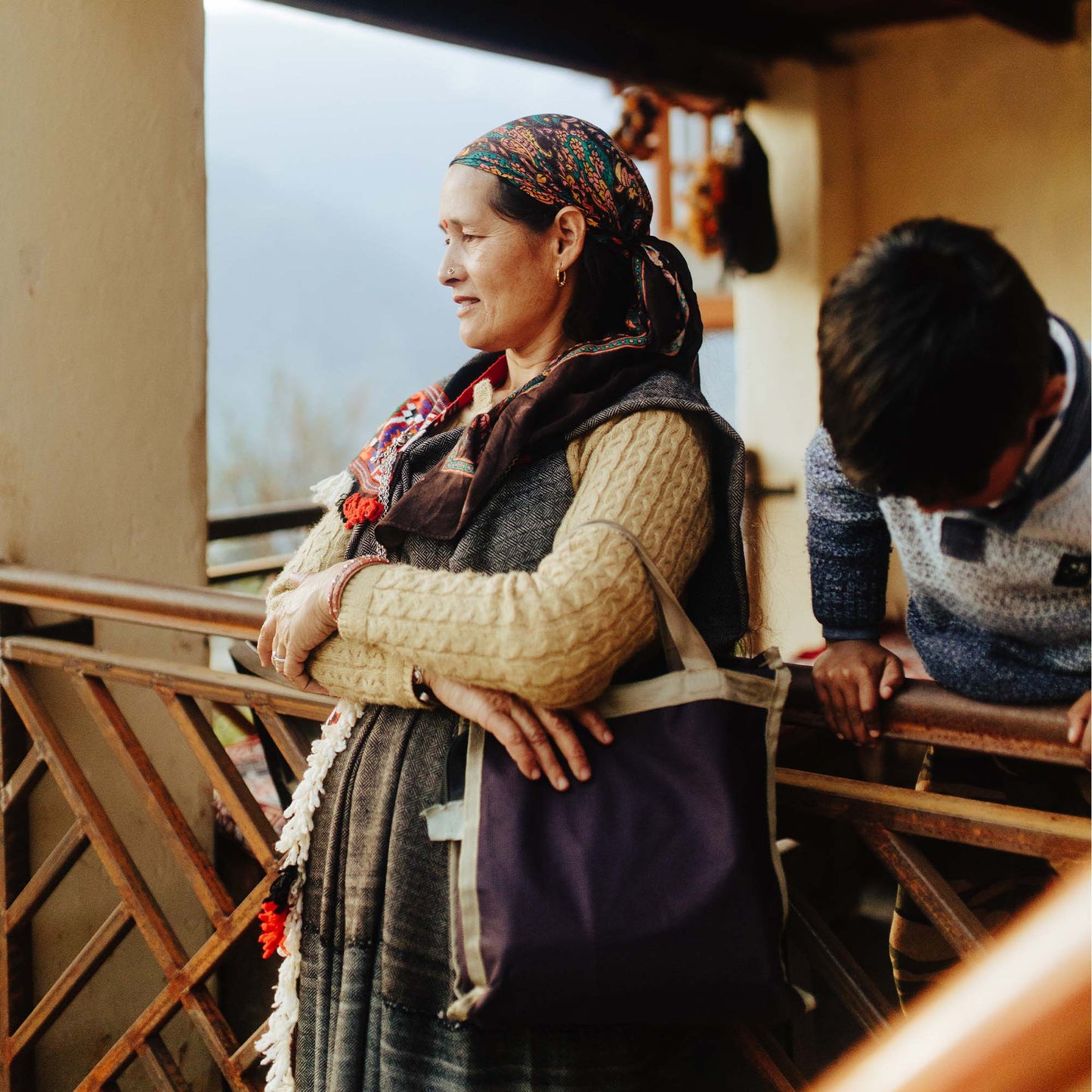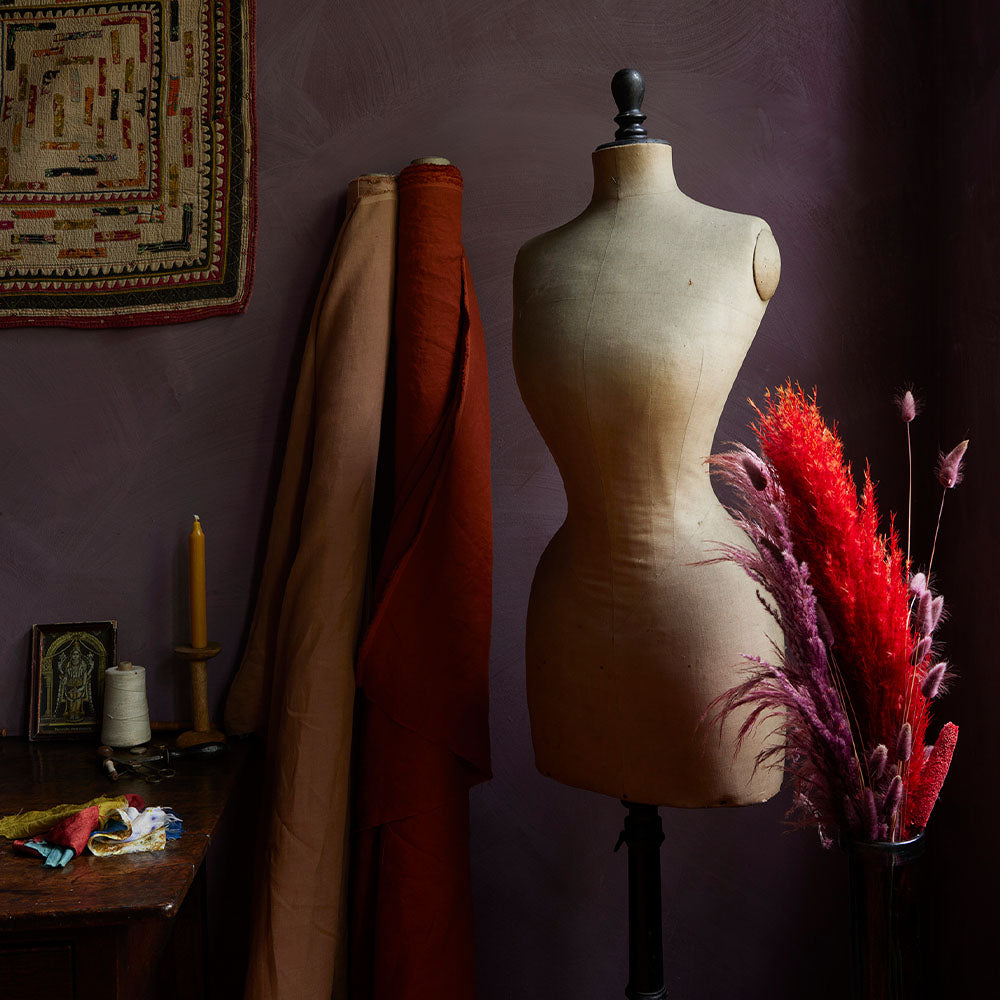Ancestral Wisdom with Nathalie Kelley
Ancestral wisdom, for me, is the culmination of knowledge accumulated by our ancestors over thousands and thousands of years, based on millennia of observation of the natural world, observation of relationships between all living beings, the interconnectivity of all living beings, and as humans deepened their observation of these things, knowledge systems were created. Innovations in agriculture, astronomy, and engineering: this is what I would call ancestral wisdom.
What is ancestral wisdom for you?
Ancestral wisdom, for me, is the culmination of knowledge accumulated by our ancestors over thousands and thousands of years, based on millennia of observation of the natural world, observation of relationships between all living beings, the interconnectivity of all living beings, and as humans deepened in their observation of these things, knowledge systems were created. Innovations in agriculture, astronomy, and engineering: this is what I would call ancestral wisdom.
And it is very much a science and technology as well. For example, weaving clothes. I mean, on one level it's practical and it's a necessity to cover our bodies with clothes. But my ancestors, the Quechuas, took it. And, you know, my family, the Quechuas, people that still live today. But the Quechuas took it to another level. They said, okay, we're going to weave clothes to wear. But in these clothes, we're also going to weave our language, our cosmic vision, our stories. And this became and even messages, our Alphabet was even recorded in woven knots. And so, you have this thing that then becomes a technology.
And I just I love the idea of ancestral wisdom, not just being something that is like, you know, exploited today, plant medicine and, you know, indigenous spirituality. Yes, that's a part of ancestral wisdom, but also the weaving, the agriculture, farming and building bio construction. These are also very necessary and practical knowledge systems that the modern world needs today.
So I think that would be the point I'm trying to make is that when we say ancestral wisdom, we're talking about thousands of years of accumulated knowledge that indigenous people have gathered through observation of the natural world and the relationships of all living beings within the natural world, and also making the point that this ancestral wisdom is beyond just the spiritual and is very much a practical application of knowledge systems and can manifest in things like technologies around agriculture, astronomy, building engineering, etc...
What made you shift your focus from acting towards activism an how did this impact your approach towards social media?
The fires in Australia in 2019/ 2020 were so apocalyptic. They impacted me in a way that I knew that I could never be the same person again and that I had to use my platform. I had to use my voice in order to point people in a different direction. I have been using it to promote the things that are causing great harm to our planet.
Consumerism a lifestyle that is not that should not be aspirational. And so, then I started to shift my focus towards pointing towards Indigenous people, Indigenous-led solutions, Indigenous technologies, and the importance of returning land to Indigenous people so they could steward it. The importance of implementing Indigenous wisdom back into land management and water management, such as, for example, using fire is an Indigenous technology. We know how to use fire to regenerate the land instead of fearing fire and then having it come through and destroy everything. Because we haven't learned to use fire as a technology, as a regenerative force. So, I started to focus my messaging around that because I really believe that indigenous wisdom and technology is what's missing in the conversation right now when we talk about climate solutions and how to avert the climate crisis. And that's why my platform is so focused on that, not just because I am also indigenous, but because I know that if I have a lot to learn from this, imagine what the rest of the world will have will be able to get from it.
Can you tell us a little bit about your indigenous background and how it informs your work and life?
So my mum is Quechua, my grandmother is Quechua, my grandmother still speaks Quechua. I was born in Peru but raised in Australia on Gadigal lands, GADIGAL, that's the indigenous Aboriginal Australian custodians of Sydney, Australia. And so, my whole life has been deeply influenced by Indigenous history, by the trauma of colonization as well, which is something very heavily felt in Australia as well as Peru. And so my mum always raised me very aware of the injustices that Indigenous people felt in Australia and in Peru. As I was growing up, I realized that I wanted to be involved in justice, in restorative justice, in not only making sure Indigenous people are fairly compensated for the injustices that have been committed against them in the last 500 years but also centring them not just as victims but as protagonists of this new story. Like, yes, we were on we were on the receiving end of grave injustices, but we're going to turn that story around and show the world that we are actually also the heroes of this story as well, because one of the biggest injustices was not acknowledging the wisdom around indigenous knowledge systems and technologies. And now we have the opportunity to say, oh, we missed that. That's actually a vital piece of the puzzle that we need right now. And how can we protagonist now these, these knowledge systems and these people and admit that that's what's actually been missing this whole time from the conversation.
"Indigenous communities make up 5% of the world's population, but protect and restore 80% of the world's remaining biodiversity"- how do you think we can give power to the Indigenous people, the true defenders, and their wisdom in restoring our world today?
Land back. Two words: land back. If Indigenous people have done such a good job stewarding biodiversity protecting lands that they currently own. Imagine if we could restore all the land rights claims in the world. We would be ensuring the protection of these biomes for future generations because Indigenous people have proved that where they are in ownership of land, stewarding of land, there is more reforestation, there's more biodiversity. And so, the land rights piece is going to be crucial. And then we also have to talk about not just returning land to them but working hard to preserve their languages and their cultures. Because the UN is even now proving that there is increased biodiversity wherever there is an increase in Indigenous languages spoken and in cultural diversity. This is called bio-cultural heritage. That saving the land goes hand in hand with saving their cultures, their languages, their songs, and their myths. And so, we need to recognize both as equally important. And then the third piece of this is that we all have to become indigenous, which is possible. We all have indigenous roots to some place. We can't just leave it to Indigenous people to steward and protect land. We all have to tune into the to our own Indigenous ancestors, however far back, and realize that for most of human history, we have actually been a beneficial keystone species, a beneficial presence to the ecosystem. And it's just very recently that we've started being so destructive. And that's why a lot of people are turning to Indigenous wisdom because they never stopped being helpful, being it being a beneficial positive part of the ecosystem. And so, they still retain some of this knowledge that we've lost. So, it's on us now to also learn that we need to re-learn and re-indigenize ourselves. Robin Wall Kimmerer says we are. We can all become indigenous to a place if we care for the land as if our children's futures depended on it. And I'll put the quote in here. I think it's really important for us not to sit back and just let the indigenous people do it. We all have to re-indigenize ourselves and learn how to be a keystone species again, a beneficial presence to the land and the animals and the waters and the trees.
As a storyteller, what would your advice be for someone who wants to enter the storytelling world and use their voice for positive impact?
Speak with love, come from love. The only way we're going to break through this dominant programming of today that is a narrative that wants to divide us. A narrative that feeds on violence, extraction, consumption, oppression, and jealousy. The only way that we're going to break through that with a new narrative is if we are rooted in love and joy and justice. The intention is everything. So, if you make love your intention in all your messaging, then you've already done a big step in being a part of this global consciousness shift that us artists are so desperately trying to usher in.
How do you personally recharge after being bombarded with worrying climate information from news or social media?
Everyone has to resource themselves with tools to get grounded to release trauma. I personally do a lot of work with my fascia FAS, CIA. I do a lot of fascia release on my body. I know that trauma is stored in my body. I dance. Dancing is my medicine. I'm learning to use my voice and use sound vibration as well for healing. I pick up a phone, I call a friend. Community we cannot do this without community. We have to make sure that we are not isolating ourselves and going down rabbit holes of doom and gloom and living in echo chambers. We have to break out of that. We have to find human connection, and we have to find more than human connection. I talk to my friends, but I also talk to the trees and the water and the sky and the wind. And I talk to the elements. And I think building those relationships will help us realize that we're not alone in this and that our interdependence and our understanding of our interdependence with all other living beings is what's going to give us the hope to get us out of this mess.
What does "sisterhood" mean to you?
Sisterhood means to me and a rising tide of women rooting in the feminine rooting in feminine wisdom. What is the feminine, and what is feminine wisdom? The feminine is stillness. It's silence. It's receptivity. It's compassion. It's healing. It's nurturing. It means saying no to nonstop working. It means saying no to the hustle, no to the need and desire to make more, build more, spend more, and do more. It means putting up clear boundaries and saying today, I will rest, or no, I am not available for that, or my body says no. Listening to our deep intuition, not being afraid to go against the dominant story, the grain of the dominant world culture that tells us we always need to be producing. We always need to be making more and more. Spending more, buying more. The feminine says no. In fact, today I will not buy anything. I will plant, I will grow, I will nurture, I will tend, I will heal. And that, to me, is a sisterhood. Is this growing movement of women recognizing that what the missing piece of this is also the feminine, and the indigenous people represent that kind of right-brain feminine wisdom. It's a knowledge rooted in intuition. And that is what women guide. We are the guardians of that kind of lunar right brain knowledge that place beyond logic, that wisdom that lives in our hearts and in our guts.









